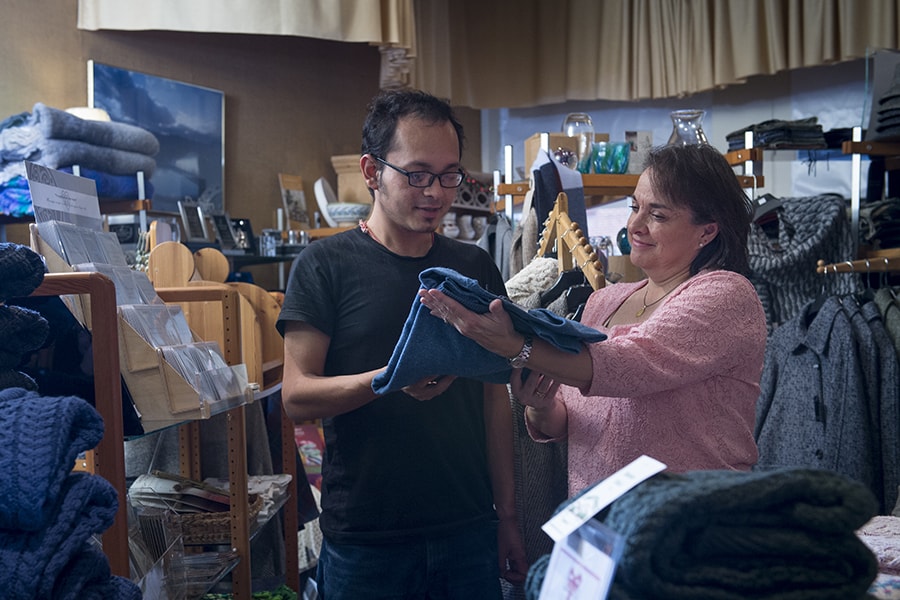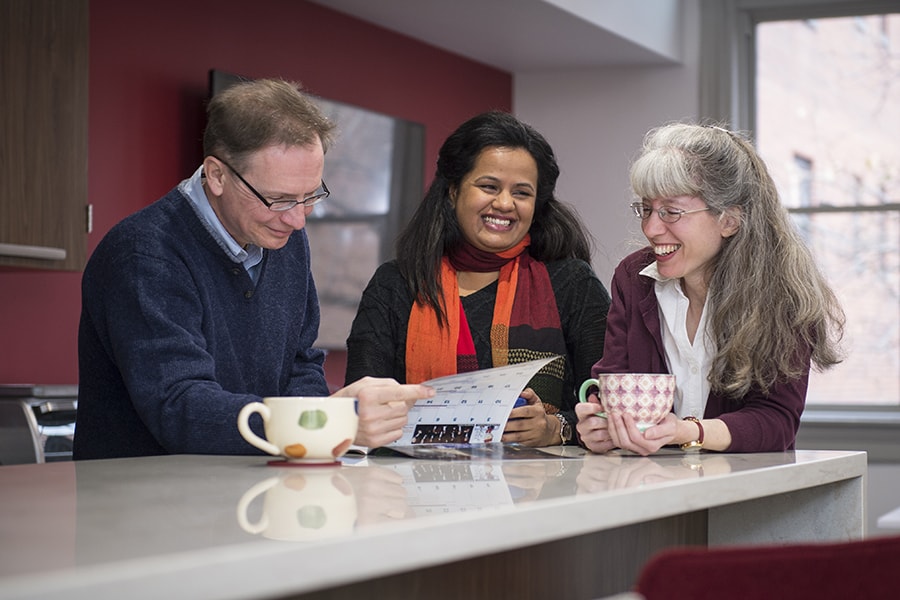
Host Families Provide “Comforts of Home” to International Students
By Kelly Saavedra
When Anit Kumar Sahu returns from Winter Break to resume his doctoral studies at Carnegie Mellon University, he will be 10,000 miles from his family in India. But thanks to his host family in Pittsburgh, he will enjoy a few of the “comforts of home” while he is here.
“One of my favorite stress busters is cooking. When my host family invited me to cook some old-school Indian food for them at their place, nothing made me more happy than that,” Sahu said.
Sahu’s host family is the family of Christine Asenjo, a CMU staff member who coordinates international programs at the university. Asenjo invites Sahu to her family’s birthday and holiday celebrations and other informal gatherings.
“Getting a few hours away from work to spend in a welcoming family environment helps me with the stress levels considerably. I feel my home has moved 10,000 miles closer. I have gotten to know Pittsburgh well through Christine and her family, and for every occasion, I have a family here to share it with,” Sahu said.
The Host Family Program for international students is part of a university-wide effort to enhance the CMU student experience by facilitating greater engagement between students and CMU faculty, staff, alumni and local families. The program gives international students the opportunity to explore Pittsburgh with their hosts, engage in meaningful dialogue, practice their English, and generally enjoy a connection to the city they might not otherwise experience.
The program was started by Jimmy Hsia, vice provost for International Programs and Strategy, who benefitted from a similar program while he was in the United States working toward his Ph.D. in mechanical engineering 30 years ago.
“If you look at our domestic students, before they enroll they have visited campus, and sometimes they already know somebody here. That type of connection for many if not all international students is not there,” said Hsia, a native of China. “Before they enroll, most of them have never even taken the campus tour. So, when they arrive there is a cultural shock. That puts a lot of pressure on these international students.”
Hsia said most of the international students in the program are master’s degree students, and “when they come, they jump right into their work. You can imagine many of them need support, need some social circle as a support structure,” Hsia said.
Before the Host Family Program, Hsia said students identified and socialized only with students from their home country.
“That is what we want to avoid,” Hsia said. “We want them to come here to be part of the community, rather than be siloed with their own countrymen and countrywomen. Now that we have run it for one and a half years, we see there is a benefit for the host families as well.”
Singles, couples and families with children are all welcome to apply to be hosts. So far this academic year, Asenjo has matched 131 students with 81 hosts. Richard Kepple and his wife, Gail, typically meet with their students four to five times during the semester. Currently, they are hosting Taruna Vardha (center, photo below).
“The students have a hard time tearing themselves away from their studies, so sharing a meal has been a good option. They need to eat anyway!” Kepple said.

The Kepples have found that a simple breakfast together tends to be a mutually enjoyable experience. They also have spent time with their students at local museums and theatrical and dance performances.
“It’s wonderful to meet young people from different cultures and learn about their lives,” said Kepple, who is director of advancement research at CMU. “It’s also rewarding to introduce them to Pittsburgh and to provide some insight into at least a small slice of American culture.”
Lyn Krynski and her husband, members of CMU’s Osher Lifelong Learning Institute, have hosted a student from China who, like Sahu, enjoyed the opportunity to cook and share authentic cuisine from his home country. They also hosted a student from India after he had returned from a summer internship in California.
“It was fascinating to hear about his work experience in a field that is mostly unknown to us,” Krynski said. “Often we invited other friends from our social circle to join us. It always expanded the conversation, and everyone took something away from the experience.”
Krynski said both students expressed the value of having supportive people to relax with and to ease the rigor of academic life.
“To be ‘that person’ for them has been a joy,” Krynski said.